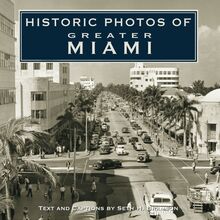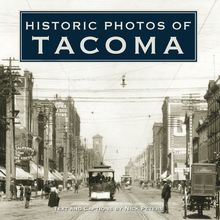Historic Photos of Memphis , livre ebook
190
pages
English
Ebooks
2006
Vous pourrez modifier la taille du texte de cet ouvrage
Obtenez un accès à la bibliothèque pour le consulter en ligne En savoir plus
Découvre YouScribe en t'inscrivant gratuitement
Découvre YouScribe en t'inscrivant gratuitement
190
pages
English
Ebooks
2006
Vous pourrez modifier la taille du texte de cet ouvrage
Obtenez un accès à la bibliothèque pour le consulter en ligne En savoir plus
Publié par
Date de parution
01 juin 2006
Nombre de lectures
1
EAN13
9781618586537
Langue
English
Poids de l'ouvrage
50 Mo
Publié par
Date de parution
01 juin 2006
Nombre de lectures
1
EAN13
9781618586537
Langue
English
Poids de l'ouvrage
50 Mo
HISTORIC PHOTOS OF
MEMPHIS
T EXT AND C APTIONS BY G INA C ORDELL AND P ATRICK O D ANIEL
HISTORIC PHOTOS OF
MEMPHIS
Turner Publishing Company
200 4th Avenue North Suite 950
Nashville, Tennessee 37219
(615) 255-2665
www.turnerpublishing.com
Historic Photos of Memphis
Copyright 2006 Turner Publishing Company
All rights reserved.
This book or any part thereof may not be reproduced or transmitted in any form or by any means, electronic or mechanical, including photocopying, recording, or by any information storage and retrieval system, without permission in writing from the publisher.
Library of Congress Control Number: 2006902320
ISBN-13: 978-1-59652-261-9
ISBN: 1-59652-261-5
Printed in China
09 10 11 12 13 14 15 16-0 9 8 7 6 5 4 3
C ONTENTS
A CKNOWLEDGMENTS
P REFACE
P RE -C IVIL W AR TO THE T URN OF THE C ENTURY
M EMPHIS AT THE T URN OF THE C ENTURY
A T HRIVING M ETROPOLIS
A C ITY ON THE M OVE
1960 TO A M ODERN C ITY
N OTES ON THE P HOTOGRAPHS
Interior of the Shelby County Court House law library, 1913.
A CKNOWLEDGMENTS
This volume, Historic Photos of Memphis , is the result of the cooperation and efforts of many individuals, organizations, and corporations. It is with great thanks that we acknowledge the valuable contribution of the following for their generous support:
First Tennessee Bank
Memphis Light, Gas Water
Memphis Public Library
We would also like to express our gratitude to Dr. Wayne Dowdy for providing research and contributing in all ways possible.
And finally, we would like to thank the following individuals for their valuable contribution and assistance in making this work possible:
Dr. Jim Johnson, Memphis and Shelby County Room, Memphis Public Library
Patricia LaPointe, Memphis and Shelby County Room, Memphis Public Library
Dr. Jim Johnson, Senior Manager, History Department
G. Wayne Dowdy, Archivist, History Department
Patricia LaPointe, Curator, Memphis and Shelby County Room
Betty Anne Wilson, Assistant Director for Library Advancement
Kim Cherry, Vice President of Corporate Communications, First Horizon National Corporation
P REFACE
Memphis has thousands of historic photographs that reside in archives, both locally and nationally. This book began with the observation that, while those photographs are of great interest to many, they are not easily accessible. During a time when Memphis is looking ahead and evaluating its future course, many people are asking how do we treat the past? These decisions affect every aspect of the city - architecture, public spaces, commerce and infrastructure - and these, in turn, affect the way that people live their lives. This book seeks to provide easy access to a valuable, objective look into the history of Memphis.
The power of photographs is that they are less subjective in their treatment of history. While the photographer can make decisions regarding what subject matter to capture and some limited variation in its presentation, photographs do not provide the breadth of interpretation that text does. For this reason, they provide an original, untainted perspective that allows the viewer to interpret and observe.
This project represents countless hours of review and research. The researchers and authors have reviewed thousands of photographs in numerous archives. We greatly appreciate the generous assistance of the archivists listed in the acknowledgements of this work without which, this project could not have been completed.
The goal in publishing this work is to provide broader access to this set of extraordinary photographs that seek to inspire, provide perspective and evoke insight that might assist people who are responsible for determining Memphis future. In addition, the book seeks to preserve the past with adequate respect and reverence.
The photographs selected have been reproduced using multiple colors of ink to provide depth to the images. With the exception of touching up imperfections caused by the damage of time, no other changes have been made. The focus and clarity of many images is limited to the technology and the ability of the photographer at the time they were taken.
The work is divided into eras. The history of Memphis is recorded in some of the earliest known photographs from pre-Civil War to modern Memphis.
In each of these sections we have made an effort to capture various aspects of life through our selection of photographs. People, commerce, transportation, infrastructure, religious institutions and educational institutions have been included to provide a broad perspective.
We encourage readers to reflect as they go walking in Memphis, along the riverfront or through the Peabody. See the riverboats that once lined the Mississippi and many buildings, long since demolished, that lined Front and Main streets. It is the publisher s hope that in utilizing this work, long time residents will learn something new and that new residents will gain a perspective on where Memphis has been, so that each can contribute to its future.
- Todd Bottorff, Publisher
Memphis wharf with steamboats docked and ready for loading of goods.
P RE -C IVIL W AR TO THE T URN OF THE C ENTURY
1860-1899
Memphis had developed considerably because of river trade by the second half of the nineteenth century. The city s commercial importance increased when the Memphis and Charleston Railroad was completed in 1857, linking the Atlantic Ocean and the Mississippi River. The city s population in 1860 was ten times greater than it had been just twenty years earlier largely due to an influx of Irish and German immigrants. Before the Civil War, Memphis was a vibrant and important city.
The city was occupied by Federal forces in June 1862 following the Battle of Memphis. Fortunately, the brief naval engagement left the city largely undamaged and the business community continued to thrive even under occupation. As the city adjusted to life after the Civil War newcomers continued to flock to the city.
Memphis was a haven for thousands of displaced former slaves. Their presence, along with the predominantly African American Federal occupation force, led to a shift in the city s racial makeup causing resentment among many former Confederates. Tensions erupted into a three-day race riot in 1866 leaving many dead and injured. Despite adverse circumstances in the wake of this tragedy, African Americans managed to maintain a foothold in the fabric of the growing city. As time went on, many made social, political and economic advances rarely seen in other Southern cities.
The 1870s were difficult times for Memphis. The city suffered a series of devastating yellow fever outbreaks in the 1860s and 1870s, but the worst outbreak was in 1878. Thousands died, while many others fled the city never to return. Falling property values and reckless management of city finances led the city to declare bankruptcy and to loose its charter in 1879.
The end of the nineteenth century marked a period of renewal for Memphis. In 1880, state-appointed officials took control of the city and cleared debts, improved sanitation and rebuilt the political infrastructure. Cotton and the growing hardwood industry contributed to the economic recovery. Other improvements included the discovery of artesian water in 1887, the construction of the Frisco Bridge across the Mississippi River in 1892 and the first public library in 1893. Also in 1893, home rule for Memphis returned and the South s first African American millionaire, Robert Reed Church, Sr., purchased the first city bond. Memphis continued to grow with the opening of the Porter Building in 1895, which was the city s first modern skyscraper, and the opening of Church s Park and Auditorium, the city s first park and entertainment center for African Americans, in 1899.
The home of James Monroe Williamson during the Civil War with soldiers on the grounds.
The Hunt-Phelan House. The home was built between 1828 and 1832 on Beale Street and was headquarters to General Leonidas Polk during the Civil War. After the war, the Freedman s Bureau ran a school on the property.
This is the last photograph taken of the Sultana . It was destroyed when the boilers exploded shortly after leaving Memphis on April 27, 1865. The sinking of the Sultana was the worst maritime disaster in American history.
Frederick H. Cossitt and family, 1884. A gift of $75,000 from Cossitt s estate made the founding of the first free public library in Memphis possible.
The Memphis Boat Club was organized in 1901 to foster participation in rowing, boating and yachting.
Illinois Central Railroad, East End Dummy Line, 1888.
Equitable Building, 1890s.
Goldsmith s Dry Goods Store at 348 Main Street, 1880s.
The Great Bridge, later named the Frisco Bridge, during construction, 1891.
Erection of the east intermediate span of the Frisco Bridge, March 2, 1892.
Belle of the Bends at Memphis, circa 1899.
Opening of the Great Bridge at Memphis on May 12, 1892. The bridge was only the second to span the Mississippi River, after the Eads Bridge was constructed at St. Louis in the 1870s. After the bridge was purchased by the St. Louis and San Francisco Railway in 1903, the name was changed to the Frisco Bridge.
Scene from South Memphis, circa 1899.
Court Square in 1895. The park is one of the four public squares originally designated in 1819. The fountain was erected in 1876 in honor of the nation s Centennial.
Masonic Temple at the corner of Madison and Second Street, 1895.
St. Brigid s Catholic Church, 1895. It was built in 1870 and served the largely Irish population of the Pinch District for many years.














